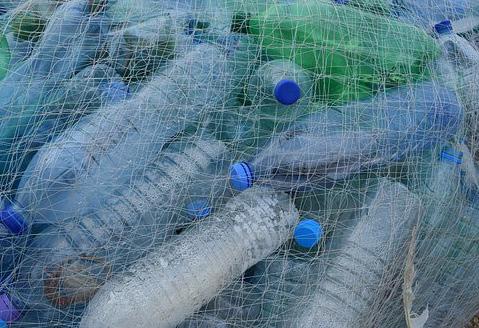THOUGHT LEADERSHIP
State of our WASTE INDUSTRY The South African waste management industr y plays a vital role in keeping our environment clean and can be counted among the most efficient on the African continent. Kate Stubbs, Marketing Director at Inter waste, shares her insights into what can be expected in the waste industr y for 2022.
T
he South African waste management industry is evolving and is one of the most efficient on the continent. However, the country is still generating large amounts of waste annually and most of our landfill sites are fast approaching full capacity. According to the latest available statistics, South Africans generate roughly 122 million tonnes of waste per year. Of this waste, a maximum of only 10% is recycled or recovered for other uses, while at least 90% is landfilled or dumped illegally.
Current situation Currently, South Africa has a comprehensive legislative framework, and that is mainly due to the fact that it’s still relatively new. However, we all know that we have a severe waste management problem that needs our immediate attention. Some of the biggest drivers for waste are population growth, urbanisation, a lack of compliance and general behaviour towards managing waste effectively. The population of South Africa was estimated to be 60.14 million at mid-year 2021 – an increase of about 604 281 (1.01%) since mid-2020. We are also experiencing rapid urbanisation and have one of the highest urbanisation rates globally. This means we are going to produce more waste – which will inevitably exacerbate an already quite dire situation. We are also dealing with a legacy issue; many of our landfills are not compliant with the current legislature and are not being managed effectively. This in turn pollutes our natural resources and environment. Although I do not like to single out plastics (as plastics do have their role to play), we have to face the fact that South Africa has a plastics issue, due to its incorrect handling and disposal. The Covid-19 pandemic saw the rise of single-use plastics through personal protective equipment and single-use plastic wrapping. The pandemic also saw a rise in illegal dumping and a general rise in municipal solid waste production – which naturally put the municipal waste management system under a lot of pressure. Another challenge we are facing is that we don’t have accurate data within the market; we have not fully quantified our waste problem. These statistics, coupled with the current state we are in as a country, reflect an urgent need for us to start focusing on diversion from landfill, finding alternative uses and revenue streams, and a commitment to adhering to legislative frameworks. We can no longer look at waste management with a linear view though – we must change our behaviour from the ‘throwaway culture’ many businesses, individuals and households have to a more circular approach, where we try to eliminate waste wherever possible or reuse, recycle and recover it for alternate purposes.
The good The upside is that South Africa has a large informal waste sector. According to the Waste Pickers Association, South Africa has more than 90 000 waste pickers. The CSIR stated that in 2014 alone informal pickers saved municipalities between R309 million and R748 million in landfill airspace. This by simply diverting recyclables from landfills. They are doing an outstanding job and it’s encouraging to see that numerous municipalities are now developing initiatives to formalise informal workers. We have seen this through the development of the waste pickers integration guideline for South Africa, produced by the Department of Forestry, Fisheries and the Environment in 2020. It provides guidance to municipalities and industry on measures to improve their working conditions.
12
FEBRUARY 2022
|
ReSource


















